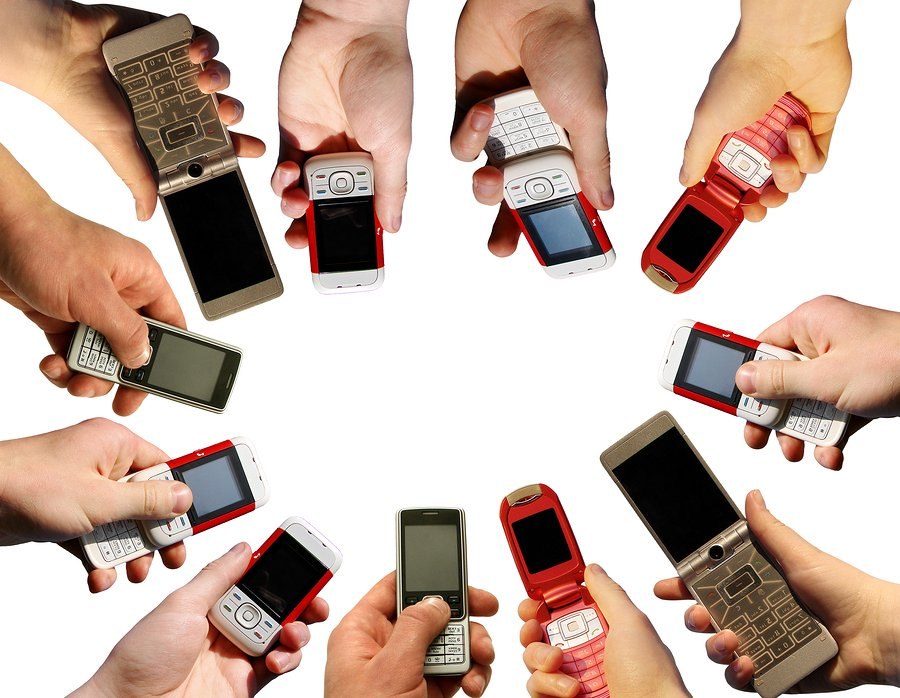
- 91% keep their mobile phone with them at all times
- 68% subscribe to ‘local SMS bundle package’
- 58% agree late night free call packages should be banned
Mobile Phone Ownership and Usage
More than half of online respondents in Pakistan own one mobile phone handset (54 percent), while over one-third (35 percent) own two mobile handsets. Interestingly, one-in-ten online respondents own more than three mobile phone handset(s). Among those who personally own more than one mobile handset, the highest proportion of over two-thirds claim to use two mobile handsets on a daily basis (68 percent).
Mobile Phone Habits
The majority of online respondents in Pakistan say they keep their mobile phone with them at all times (91 percent). Almost three-quarters claim the first thing they do in the morning is check their phone. A similar proportion of online respondents say they check their mobile phone before they sleep and admit to keeping the phone ringer on while sleeping (71 percent). Over three-quarters admit they rarely change their ring tone (76 percent). Interestingly, more than half of the online respondents say late night call packages should be banned (58 percent), while more than two-fifths say they keep an eye out for telecommunication providers who offer lower calling charges (41 percent).
Mobile Phone Brands
When asked which brand of mobile handset(s) they own, the highest proportion own a Nokia (55 percent), while over a quarter own a Samsung (26 percent). Other popular brands include Q Mobile (13 percent), HTC (12 percent), and iPhone (11 percent). Almost two-fifths of online respondents say they use Nokia on a daily basis (39 percent), followed by a fifth who use Samsung. Q Mobile, HTC and iPhone was used by around one-tenth on a daily basis (10 percent, 9 percent and 8 percent respectively).
SIM Card Ownership and Packages Subscribed to
Two-fifths of online respondents say they own two SIM cards, while a similar proportion say they own three SIM cards (15 percent) or more than four (13 percent). Highest proportion of online respondents claim to use Ufone SIM Cards (57%), while almost two-fifth use Mobilink (38 percent). A similar proportion of online respondents claim to use Warid and Telenor SIM cards (35 percent and 32 percent respectively). A high proportion of the online respondents say they have subscribed to ‘local SMS bundle package’ (68 percent). This includes a high proportion of the young urban population aged between 18-24 (89 percent) and 25-29 (83 percent). Over a quarter claim to have subscribed to ‘local calls package’ (28 percent), in comparison to a few who have subscribed to ‘international calls package’ (4 percent), ‘all night free calls package’ (4 percent) and ‘international SMS bundle package’ (3 percent).
Mobile handset Internet usage and activities
Similar proportions of online respondents say they spend a few seconds (23 percent), less than 15 minutes (22 percent), between 15 minutes to an hour (21 percent) accessing the internet on their mobile handset. Around one-tenth say they spend between 1 hour – 2 hours (11 percent), 2 hours – 3 hours (8 percent), 3 hours – 5 hours (7 percent) and over 5 hours (9 percent), accessing the internet on their mobile phone.
Around a third of the online respondents say they send and receive email (35 percent), use social networking websites (35 percent), chat (30 percent) and search online (30 percent) several times a day on their mobile handset using their internet/WIFI while almost a third browse news websites (32 percent), or download apps (24 percent) at least once a day. A high proportion of respondents say they never shop online (67 percent), watch movies online (57 percent), participate in online/social gaming (48 percent), or download movie/songs (45 percent), upload their pictures/videos (35 percent) through their mobile handset using their internet/WIFI.
The survey was conducted using the YouGov Online Panel and all questionnaires were completed between the 21st- 30th October 2013. The results are based on a total sample of 1010 respondents currently living in Pakistan. The YouGov panel is broadly representative of the online population within Pakistan.